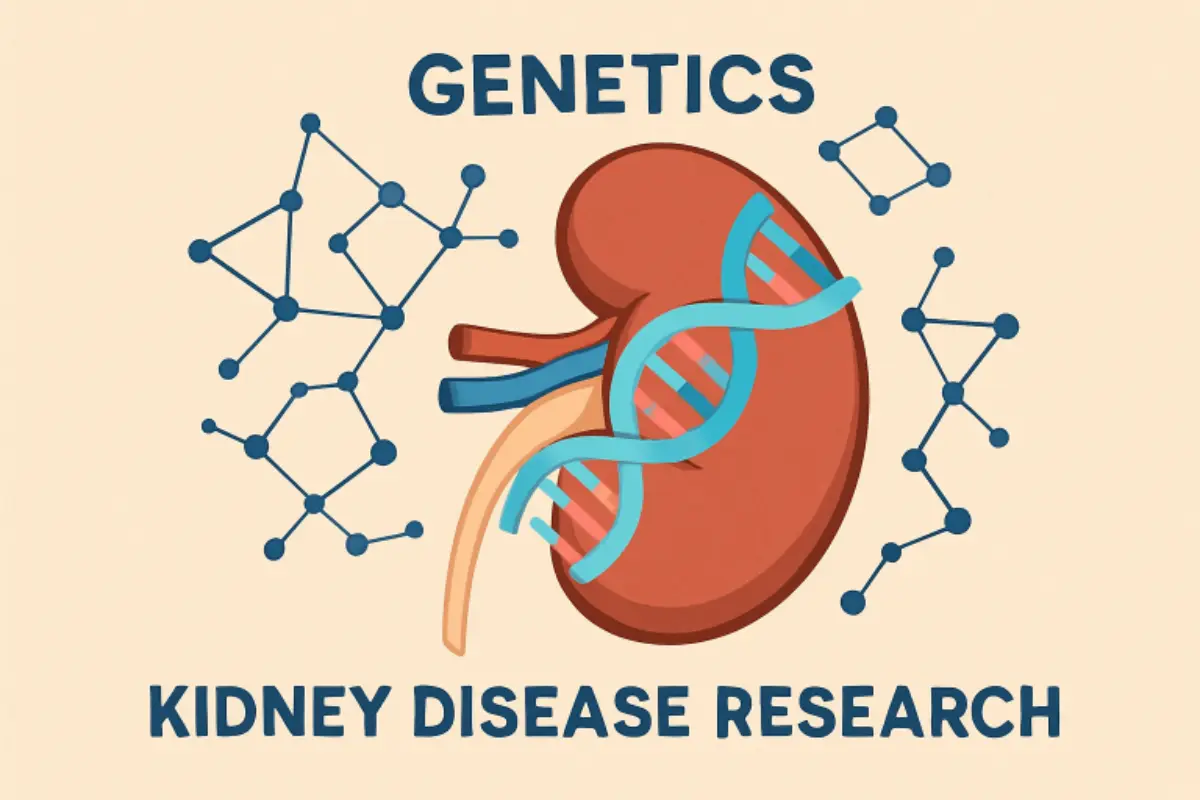Kidney disease is a complex and pervasive condition that affects millions of people globally, leading to serious health complications such as hypertension, anemia, and cardiovascular events. In severe cases, individuals may face progression to end-stage renal disease, which often requires dialysis or a kidney transplant for survival.
For decades, researchers and clinicians have strived to identify more effective ways to prevent, diagnose, and treat kidney disorders, battling both genetic and environmental contributors to disease progression. However, there has been an unprecedented surge of nephrology discoveries in recent years thanks to advancements in genomics, biotechnology, and data science.
The entire field stands on the verge of a significant transformation, with innovative breakthroughs poised to alter the landscape of patient care and outcomes. Among these advancements, the Vertex APOL1 kidney disease clinical trial draws substantial attention for its focus on APOL1-mediated kidney disease.
This is a hereditary form more common among people of African descent, a group frequently at heightened risk for poor kidney outcomes. By honing in on the genetic mutations that cause this disease, researchers are ushering in a new era of targeted, personalized medicine. The clinical study exemplifies the promise of precision medicine, where treatments can be thoughtfully matched to each individual’s genetic makeup.
As biotechnology companies and academic partners intensify their focus on the genetic underpinnings of kidney disorders, there is a growing sense of hope for researchers and countless individuals and families at risk for kidney disease.
Contents
Gene Therapy: A Promising Frontier
One of the most groundbreaking directions in kidney research is gene therapy, which can potentially correct disease at its genetic roots. Scientists at Oregon Health & Science University have recently honed new methods for delivering genetic materials directly into kidney cells, opening the door to precise, lasting interventions.
By refining both viral and non-viral delivery vectors, researchers are finding ways to navigate the challenges unique to the kidney, such as its filtration barriers and delicate microenvironments. If successful, these approaches could allow clinicians to correct genetic mutations at their source, offering the possibility of curative treatments for chronic kidney diseases that have long resisted conventional therapies.
For individuals with conditions like autosomal dominant polycystic kidney disease (ADPKD) or APOL1 nephropathy, gene therapy promises not just symptom management but real, lasting change at the molecular level. Scientists imagine a future where patients could receive an infusion or a targeted injection that fixes the defective gene, halting disease progression before irreversible damage occurs.
Clinical trials are in their early stages, but with each small success, the potential becomes clearer. These therapies could profoundly benefit individuals with inherited kidney diseases, giving fresh hope to families who have historically faced few options for adequate care and support.
Mapping the Genetic Landscape
Another monumental stride comes from the creation of detailed genetic maps, which are transforming how clinicians and researchers understand kidney disease. At the University of Pennsylvania, an interdisciplinary team has compiled an extensive map of over 1,000 genes linked to kidney function and disease. This expansive resource not only aids in early and accurate diagnosis but also allows for the development of highly targeted therapies tailored to an individual’s genetic risk profile.
These genetic maps are critical as they offer a roadmap to unravel complex diseases that were once considered mysterious or intractable, such as focal segmental glomerulosclerosis (FSGS) and IgA nephropathy.
Precision medicine is rapidly evolving within nephrology, as clinicians and researchers can now navigate the intricate interplay between genetics and kidney health with much greater clarity. For instance, doctors can screen high-risk patients for specific genetic mutations, enabling earlier interventions and personalized treatment plans designed to address the unique genetic drivers of their illness.
The insights gleaned from mapping genetic variants are already driving the development of new diagnostics and pioneering treatments, equipping practitioners with better tools to anticipate, prevent, and manage disease progression.
Repurposing Existing Drugs
The innovation in kidney care doesn’t end with brand-new drug development; researchers and pharmaceutical companies are also exploring the power of drug repurposing. Repurposing medications means finding new clinical applications for drugs already approved for use in other conditions. In a decisive move that could reshape the therapeutic landscape, the U.S. FDA recently approved Ozempic—created initially as a diabetes medication—to slow the progression of chronic kidney disease in at-risk populations.
This pivotal development is based on rigorous clinical trials demonstrating Ozempic’s ability to protect kidney function, reduce proteinuria, and decrease the risk of kidney-related complications in people with diabetes and chronic kidney disease.
This decision highlights the significant potential held by well-established drugs to address new clinical challenges and patient populations. Such approaches accelerate access to life-saving therapies and significantly reduce development costs and timelines compared to traditional drug discovery pipelines. For patients, drug repurposing can mean faster relief and more treatment options; for healthcare systems, it often translates into more cost-effective and widely accessible therapeutic choices.
Advancements in Xenotransplantation
Organ shortage remains a critical and heartbreaking barrier to effective treatment for patients with kidney failure. Every year, thousands of people are added to transplant waiting lists, while only a fraction receive donor organs in time. Xenotransplantation—the transplantation of animal organs into humans—has achieved remarkable progress recently, offering a bold and innovative path forward. In a historic achievement, a gene-edited pig kidney was transplanted into a human patient in Alabama, marking a milestone for the field and fueling new optimism among clinicians and patients alike.
The procedure involved extensive genetic modifications to the pig kidney to reduce the risk of rejection and cross-species immune responses, measures that are critically important for successful transplantation. The fact that the organ functioned for several weeks is a testament to years of rigorous research and collaboration across scientific disciplines.
If these early successes can be translated to broader use, xenotransplantation may one day eliminate long wait times, reduce patient suffering, and save countless lives around the globe. Though still experimental, the approach reflects the creative and urgent search for solutions to one of medicine’s most persistent challenges.
Artificial Intelligence in Early Detection
Technological innovation is also reshaping how kidney disease is detected and managed, ushering in an era of smarter, data-driven medicine. Artificial intelligence (AI), with its powerful ability to process and analyze large datasets, has seen increasing application in kidney care, especially at the intersection of clinical practice and research.
AI algorithms can identify subtle patterns and early warning signs that human eyes might miss by harnessing electronic health records, laboratory data, medical images, and even real-time patient monitoring devices.
This enables healthcare providers to intervene sooner, personalize treatments, and in many cases, prevent further disease progression before critical thresholds are reached. For instance, some AI systems can flag patients at risk for acute kidney injury or chronic kidney disease based on routine lab tests and patient histories, prompting early diagnostic workups or changes in therapy.
Such predictive analytics can play a crucial role in public health, particularly in populations at elevated risk for chronic kidney disease due to diabetes, hypertension, or genetic predisposition. Major hospitals are already adopting these advanced tools, which are boosting early diagnosis rates, guiding case management, and refining the standard of care for kidney patients worldwide.
Conclusion
Kidney disease research is entering a new, exciting era, driven by trailblazing advancements in gene therapy, genetic mapping, drug repurposing, transplantation science, and artificial intelligence. The cumulative impact of these innovations cannot be overstated—together, they offer hope for better prevention, earlier detection, and more effective treatments for patients worldwide.
These rapid developments will likely broaden the options available for every stage of kidney disease, from early risk assessment to advanced interventions for those facing end-stage renal failure.
As research continues to accelerate and insights from laboratories are translated to real-world care, individuals affected by kidney disease and their healthcare providers have newfound reasons to remain optimistic. Staying engaged with these advancements through education and dialogue remains crucial for leveraging the latest breakthroughs in the fight against kidney disease. By fostering awareness, access to care, and informed decision-making, society can move closer to reducing the burden of kidney disease for future generations.



